
An alarming but informative data visualisation from the Straits Times, on the environmental impact of all the disposable medical masks being used during the pandemic.
Experts now estimate that each month, 129 billion face masks and 65 billion gloves are used and disposed of globally. With a surgical mask weighing roughly 3.5g, that would equate to 451,500 tonnes of masks a month and, when placed next to one another, cover an area roughly three times the size of Singapore.
Conservationists and non-governmental organisations are increasingly concerned that a lot of the plastic waste, especially pandemic-related waste, is ending up in landfills, waterways and oceans, adding to the millions of tonnes of plastic waste already dumped into the world’s oceans every year.
Germany records almost 17,000 new cases
The number of confirmed coronavirus cases in Germany increased by 16,946 to 1,908,527, data from the Robert Koch Institute (RKI) for infectious diseases showed on Sunday.
The reported death toll rose by 465 to 40,343, the tally showed.
Thousands of Israelis on Saturday renewed weekly demonstrations against Prime Minister Benjamin Netanyahu, calling for the long-serving leader to resign over corruption charges against him and his alleged mishandling of the coronavirus crisis.
Protesters held signs reading “Go,” and “Bibi, let my people go,” referring to Netanyahu by his nickname.
The protest in a Jerusalem square near Netanyahu’s official residence comes as Israel is the midst of its third national lockdown, which was recently tightened to shutter schools, and as the country presses forward with a world-leading vaccination drive. Netanyahu’s trial was set to resume this week, but was postponed indefinitely amid the tighter restrictions.

Israelis lift placards and flags as they take part in a demonstration against Prime Minister Benjamin Netanyahu near the PM’s official residence in Jerusalem, amid the coronavirus pandemic crisis, on January 9, 2021. Photograph: Ahmad Gharabli/AFP/Getty Images

Protesters demanded that the embattled Israeli leader resign as he faces a trial on corruption charges and grapples with a deepening coronavirus crisis. Photograph: Oded Balilty/AP
Netanyahu has been indicted on charges of bribery, fraud and breach of trust connected to three long-running investigations. He has denied any wrongdoing and says he is the victim of a “witch hunt” by hostile media, law enforcement and judicial officials. Protesters argue that Netanyahu cannot properly lead the country while under indictment.
Israel has seen a recent surge in cases despite unleashing one of the world’s fastest vaccination campaigns. The country has given the first of two vaccine doses to nearly 20% of its population, and Netanyahu said Thursday that Israel has secured enough vaccines to inoculate the whole adult population by the end of March.
Netanyahu has placed the vaccination drive at the centre of his campaign for reelection that same month. On March 23, Israel will hold its fourth nationwide vote in less than two years. In the meantime, he has called on Israelis to make “one last big effort” to halt transmission by adhering to the tightened restrictions. (AP)
Here’s today’s wrap on pandemic-related events in Australia, by Christopher Knaus.
It includes Brisbane’s three-day lockdown continuing despite no new cases, and the lifting of lockdowns in Sydney’s north, despite one new case.
In New South Wales three new locally transmitted cases were recorded from 24,000 tests, two linked to the Berala cluster in Sydney’s west, which has grown to 23 cases, and one linked to the northern beaches cluster, now responsible for 150 cases.
All three had been in the community while infectious and the state has updated its list of potential exposure sites
Read the full story here:
Monday marks the anniversary of China confirming its first death from Covid-19, a 61-year-old man who was a regular at the now-notorious Wuhan wet market, writes AFP.
Nearly 2m deaths later, the pandemic is out of control across much of the world, leaving tens of millions ill, a pulverised global economy and recriminations flying between nations.
Yet China, which has broadly controlled the pandemic on its soil, is still frustrating independent attempts to trace the virus’s origins and the central question of how it jumped from animals to humans.

This photo taken on 11 January 2020 shows security guards in front of the closed Huanan Seafood Wholesale Market in Wuhan, in central China’s Hubei province. Photograph: Noel Celis/AFP/Getty Images
There is little dispute that the virus which brought the world to its knees sparked its first known outbreak in late 2019 at a wet market in the central Chinese city of Wuhan where wildlife was sold as food, and the pathogen is believed to have originated in an undetermined bat species.
But the trail ends there, clouded by a mishmash of subsequent clues that suggest its origins may predate Wuhan as well as conspiracy theories – amplified by US president Donald Trump – that it leaked from a Wuhan lab.
Establishing the source is vital for extinguishing future outbreaks early, leading virologists say, providing clues that can guide policy decisions on whether to cull animal populations, quarantine affected persons, or limit wildlife hunting and other human-animal interactions.
“If we can identify why [viruses] keep emerging, we can reduce those underlying drivers,” said Peter Daszak, president of EcoHealth Alliance, a global NGO focused on infectious disease prevention.
Updated
at 11.50pm EST
A fascinating read by my colleagues Melissa Davey, Elle Hunt, and Justin McCurry on some of the most successful nations not rushing to vaccinate.
They are the nations that have been held up as shining examples of coronavirus management. In Australia, New Zealand and Taiwan, daily Covid infections are in the single digits and outbreaks are quickly suppressed.
But there is one area where these nations lag well behind the pack: vaccination. Countries with some of the most enviable healthcare systems in the world – including Australia, New Zealand, Japan and South Korea – will not begin to inoculate until the end of February or later.
The delay is deliberate. The millions of people already being vaccinated against Covid-19 will provide valuable data to those countries who have – for various reasons – decided to wait for more information about the vaccine, its efficacy and side effects before rolling it out to vulnerable populations and the public …
Updated
at 11.19pm EST
In Western Australia a crew member of a bulk carrier ship who allegedly jumped into the water and swam ashore at a port has been charged with failing to comply with quarantine directions.
WA police said the 37-year-old Vietnamese national was a crew member on a bulk carrier which berthed at the Albany port on Thursday. On Saturday he allegedly swam ashore in contravention of border and maritime crew directions.
Crew of ships are not permitted ashore on to WA land under the emergency management quarantine directions.
The man was found by police shortly before 7pm on Saturday at an Albany backpackers’ lodge. He was tested for Covid-19, which was negative, and his health assessed.
The man was charged with failing to comply with a direction and will appear in Perth magistrates court on Sunday. (AAP)
Updated
at 10.43pm EST
“Too often, panic and isolationism seem to be playing major parts in [Australian] headlines, opinions and decision making,” writes professor of infectious diseases, Peter Collignon, in the Sun Herald. Collignon says demands for lockdowns have been wrong and he urged Australians, in particular decision-makers, “not to overreact or catastrophise”.
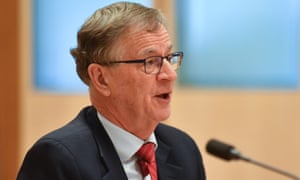
Prof Peter Collignon: ‘Don’t panic.’ Photograph: Mick Tsikas/AAP
If we look at past outbreaks in Australia – Adelaide, Logan in Brisbane, Sydney’s Crossroads Hotel – they, like the current clusters, have all been controlled by a combination of good testing, contact tracing, quarantining of close contacts and limits on the size of indoor events.
Melbourne’s devastating second wave last winter was our major exception, but many important factors were poorly managed and these have now been markedly improved.
Why, then, is there now such a sense of panic that Covid-19 will spiral out of control?
Updated
at 10.27pm EST
China reports 69 new Covid cases
Mainland China reported 69 new Covid-19 cases on Saturday, more than double the 33 reported a day earlier, the country’s national health authority has said today.
Of the new cases, 21 were imported and the bulk of the locally transmitted cases, 46 out of 48, were recorded in Hebei, the province surrounding Beijing. Hebei entered a “wartime mode” this week as it battles a new cluster of coronavirus infections.
Another 27 asymptomatic cases were also reported on Saturday, down from 38 a day earlier. China does not classify these patients, who have been infected by the Sars-Cov-2 virus that causes the disease but are not yet showing any Covid-19 symptoms, as confirmed cases.
Updated
at 10.00pm EST
In the French-speaking Canadian province of Quebec, a curfew meant to curb a surge in coronavirus infections took effect on Saturday evening.
The measure is needed to prevent gatherings that have fuelled the rampant spread of the virus, premier Francois Legault said.
“The situation is critical and a shock treatment is needed,” he said in a Facebook post earlier Saturday. “Our hospitals are filling with Covid-19 patients. Hundreds of people are in intensive care, fighting for their lives. Tens of people die every day.”
The rules will see most of Quebec’s 8.4m residents face police questions or fines of up to $6,000 Canadian (US$4,728) if they’re out between 8pm and 5am for the next four weeks.
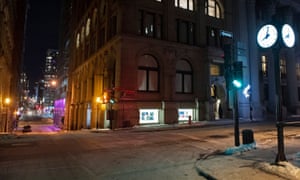
A clock on the corner of an empty street in Montreal shortly after 8pm on Saturday. Photograph: Canadian Press/Rex/Shutterstock
There are exceptions for essential workers, people walking dogs, and those who have medical reasons to be out, such as a doctor’s appointment. Under the terms of the curfew, grocery stores and convenience stores will have to close by 7.30pm in order to allow workers and customers to get home. Stores connected to petrol stations can stay open to serve essential workers.
The curfew has seen sharp resistance from some. Just before the curfew was set to take effect, a few dozen people walked through the streets of Montreal’s Plateau district, chanting “Freedom!” as five police cruisers with lights flashing trailed behind them. A helicopter hovered overhead, and police cruisers lined the streets.
The curfew comes as Quebec’s Covid cases and deaths continue to rise, with hospitals saying they are filling up and risk becoming overwhelmed. On Saturday the province reported 3,127 new cases in 24 hours, passing 3,000 for the first time; 41 people died. (AP)
Updated
at 9.46pm EST
Hongkongers stranded in the UK are contemplating a six-week journey to get home, the South China Morning Post is reporting today.
A couple of days before Christmas the Hong Kong government announced an entry ban on anyone who had been in the UK for longer than two hours in the previous 21 days. The shock announcement caught many people out, including those who had travelled to the UK to visit family for the holidays. Hong Kong, under British rule until 1997, has strong ties with the UK.
That ban was extended for another two weeks on Thursday, and came on top of other restrictions including a now three-week period of mandatory hotel quarantine for people arriving home.
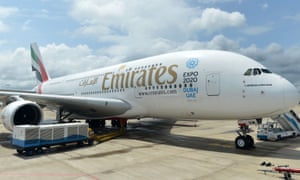
The Hong Kong government has banned all Emirates flights from Dubai and Bangkok. Photograph: Ishara S Kodikara/AFP/Getty Images
It meant the only way for people to get home was to leave the UK for another country, stay there for 21 nights before flying on to Hong Kong and spending another 21 nights in hotel quarantine.
Those trying to get back home had been advised to consider stopping over in Dubai for three weeks before continuing home. Dubai allows people from the UK to enter, as long as they take a Covid-19 test on arrival. If it’s negative they are not required to quarantine.
But now the Hong Kong government has banned all Emirates flights from Dubai and Bangkok and three passengers tested positive on arrival.
“Had we known what would happen, we would never have got on that plane,” one woman, who traveled with her family to visit sick relatives, told the Post.
The ban on UK arrivals, even for Hong Kong residents, has been labeled potentially unconstitutional but the government has maintained it is both legal and necessary.
Updated
at 9.43pm EST
Britain said on Sunday it had helped raise $1bn from global donors towards the drive to help “vulnerable countries” access coronavirus vaccines, by match-funding contributions.
It has also committed £548m ($743.4m) to the Covax Advance Market Commitment after matching with £1 for every $4 pledged by other donors.
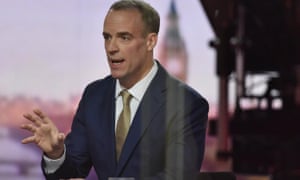
Britain’s foreign secretary Dominic Raab says: ‘We’ll only be safe from this virus when we’re all safe.’ Photograph: Jeff Overs/PA
Canada, Japan and Germany are among the countries to make contributions that it matched, helping the AMC raise more than $1.7bn so far.
The fund will allow for the distribution of 1 billion Covid vaccine doses to 92 developing countries this year, according to Britain’s Foreign Office.
“We’ll only be safe from this virus, when we’re all safe – which is why we’re focused on a global solution to a global problem,” foreign secretary Dominic Raab said. (AFP)
Updated
at 9.15pm EST
Record number of cases in Mexico
Mexico reported a record 16,105 new confirmed coronavirus cases on Saturday, and 1,135 additional deaths, according to health ministry data, bringing its total tally to 1,524,036 infections and 133,204 deaths.
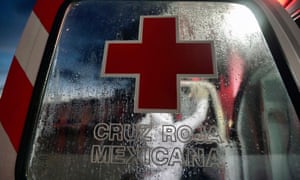
A Mexican Red Cross ambulance. Photograph: Alfredo Estrella/AFP/Getty Images
The new daily death toll marks the fifth consecutive day that officials have reported more than 1,000 fatalities due to the highly contagious disease caused by the virus.
The real number of infected people and deaths is likely to be significantly higher than the official count, the ministry has said, due to little testing. (Reuters)
Updated
at 9.20pm EST
Six new cases in Victoria, all in hotel quarantine
In Victoria, Australia, health minister Martin Foley has reported six new cases – all in hotel quarantine, including one flight crew member.
He’s welcomed the two days of zero cases in Brisbane, but Victoria will wait for the final report tomorrow as well as the prime minister’s announcement before changing any policy.
96 travellers were given permits to go into isolation at home in Victoria yesterday. They came through Melbourne airport “in breach” of Queensland’s restrictions, but they have been assisted to go home and isolate anyway, he said.
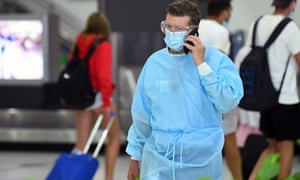
A man in personal protective equipment at a baggage collection area at Tullamarine airport in Melbourne on Friday. Photograph: James Ross/AAP
About 900 permits have been approved for Victorians trying to get home from NSW.
“This isn’t over until the Australian population is vaccinated,” he said.
(You can catch up on earlier and detailed Australian updates in our previous blog here.)
Updated
at 8.39pm EST
Cuba will run phase three trials of its vaccine candidate, Sovereign 02, in Iran, after institutes in the two countries signed an agreement in Havana.
Cuba’s state-run Finlay Vaccine Institute announced on Twitter the clinical trial would run in Iran to “move forward faster in immunisation against Covid-19 in both countries”.
The Sovereign 02 is the country’s most advanced coronavirus vaccine candidate, showing “an early immune response [at 14 days],” institute director Vicente Verez said last month.
It has been difficult to do phase 3 clinical testing in Cuba because its outbreak has not been as serious as those in many larger countries, he said.
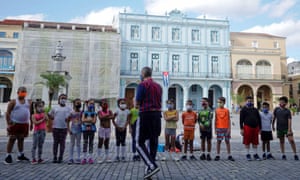
A teacher at a Cuban school explains the dangers of Covid to his students. Photograph: Alexandre Meneghini/Reuters
The Islamic republic has reported more than 1.2m cases of the virus, including more than 56,000 deaths.
It comes after Iran’s supreme leader, Ayatollah Ali Khamenei, banned the importation of US and British-produced vaccines saying they were “completely untrustworthy”.
“It’s not unlikely they would want to contaminate other nations,” he said in a tweet.
Cuba has reported about 14,000 cases among its population of 11.2m, and 148 people have died. While its case numbers are lower than other countries in the region, it is seeing an increase after opening its borders. The Cuban government intents to vaccinate the whole population in the first half of this year.
Updated
at 8.32pm EST
Pope urges people to get vaccinated
On Saturday Pope Francis and Britain’s Queen Elizabeth became the latest high-profile figures to join the global vaccination campaign against the coronavirus, as the UK reported it had surpassed more than 3m cases since the pandemic began more than a year ago.
Francis urged people to get the vaccination, calling opposition to the jab “suicidal denial” and saying he would get inoculated next week when the Vatican would begin its campaign.
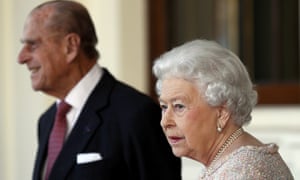
The Queen and Prince Philip were both vaccinated at Windsor Castle on Saturday. Photograph: Stefan Wermuth/AP
“There is a suicidal denial which I cannot explain, but today we have to get vaccinated,” he said in an interview with Canale 5 due to be broadcast in full on Sunday.
The Queen and her husband, Prince Philip, were vaccinated on Saturday, Buckingham Palace said, in a rare public comment on the private health matters of the long-serving monarch.
A source told the domestic Press Association news agency that the Queen, 94, and Philip, 99, were given the injections by a royal household doctor at Windsor Castle.
Updated
at 8.38pm EST
Hello, and welcome to our continuing coverage of the pandemic. As it’s the weekend we’re running just one of our coronavirus blogs, so I’ll be bringing you a mix of international updates as well as Australian news.
You can catch up on detailed Australian updates in our previous blog here.
You can also reach me on Twitter @heldavidson with your thoughts and updates.
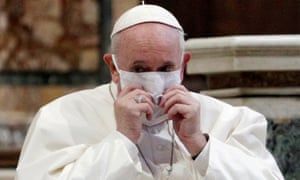
Pope Francis will be vaccinated as early as next week and urges others to do the same. Photograph: Guglielmo Mangiapane/Reuters
A quick summary of the latest so far:
- Pope Francis said he wishes to have a Covid vaccination as early as next week, as he urged others to get a shot in order to protect their own life as well as everyone else’s. The Vatican City confirmed it will shortly launch a vaccination campaign.
- Twenty-one people in Marseille have tested positive for the new Covid variant initially found in England, with officials saying the cases had been discovered within a family cluster.
- Marseille has also joined Strasbourg and Dijon in having its curfew moved forward to 6pm from 8pm, running through to 6am.
- Another 1,035 people have died within 28 days of testing positive in the UK, bringing the total to 80,868. It is the fourth day in a row that the UK has recorded more than 1,000 deaths.
- France has recorded 171 new Covid-related deaths in hospitals in the past 24 hours, with the number of new, confirmed cases up by 20,177.
- Brazil recorded 62,290 additional confirmed cases in the 24 hours to Saturday, and 1,171 deaths.
- In Australia, three new locally transmitted cases have been recorded in New South Wales. Two are linked to the Berala cluster, and one to the northern beaches cluster. The three-week lockdown of 70,000 people in Sydney’s northern beaches region is over. Brisbane remains in lockdown, despite reporting no new cases for the second day in a row.
Updated
at 8.30pm EST


